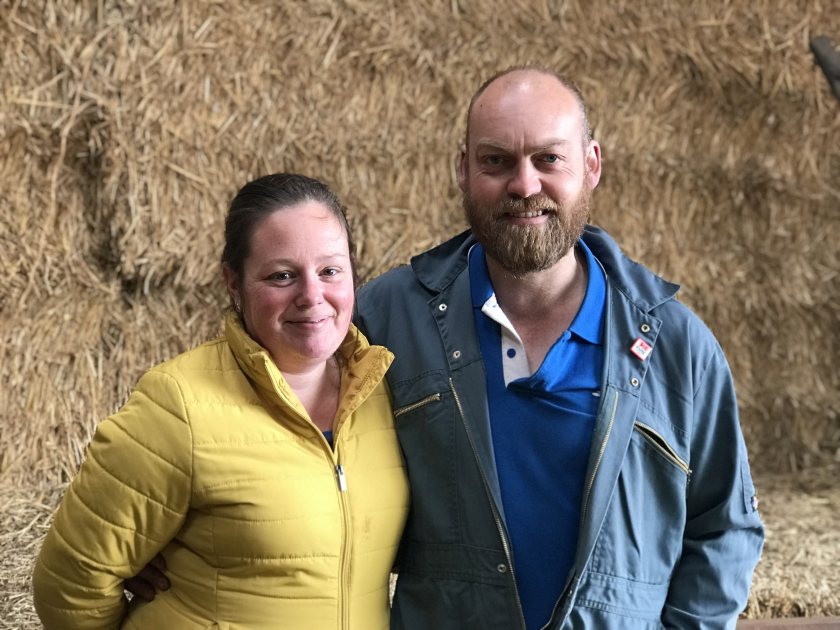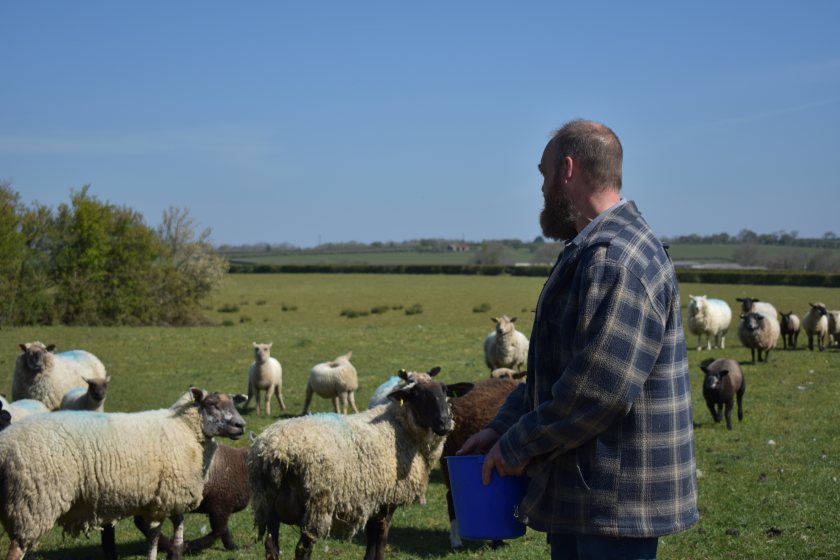
A Welsh farming couple have urged those who are suffering from mental health struggles to 'go and talk to someone' after opening up about their own battles.
Glamorgan beef and sheep farmers Richard Walker and Rachel Edwards-Walker run Flaxland Farm - a 120 acre beef and sheep holding just outside of Barry.
Richard was diagnosed with depression in 2001 and was placed on strong antidepressants. He also saw a psychiatrist, with treatment lasting for almost 2 years.
“I didn’t really know I needed help. You don’t know until you’re told that you do. In yourself you don’t recognise that you’re getting depressed," he said.
"It needs someone outside to look in and say there’s something wrong with you, you’re not right. But the weird thing is that you are still the one who has to decide to go and get that help. You can’t be forced into it."
Farming is known for its challenging working conditions, including isolation and long hours. The RABI Big Farming Survey highlighted that more than one farmer a week takes their own life.
Less visible, the survey pointed out, are high rates of mental ill-health and poor quality of life.
As farmers have to manage their working conditions, many are also put under immense pressure as uncertainty about the future casts a long shadow over their farm yard.
First to realise that Richard needed help was his mum. “She knew there was something wrong and that I needed help," he said.
"I suppose now it would be my wife to spot that. My mother noticed a change in my personality. Mood swings, less chatty.
"If you’re close to someone, in a relationship, husband, wife, mother, father, son whatever, you just know. Good friends can probably tell there is something wrong too."
Figures released by rural charity RABI point towards a problem that runs deep in the UK farming community.
Almost half of those surveyed stated that they are experiencing some form of anxiety, with a smaller group (12% and 16% respectively) experiencing either moderate or severe anxiety.
Recalling the early stages of his poor mental health, Richard said: “It was a very dark time. I didn’t want to get up in the morning. Being on a farm you have to.
"You have to feed the livestock, it’s a case of suck it up and get on with it. It was very dark."
He added: “People say reach out when you feel down, but that’s the last thing you want to do. When you’re that low, going to talk to someone it’s the last thing you want.
"You can’t ask for help, you just don’t do it. That’s where seeing a psychiatrist helped. It was a complete stranger and you sit in a room and talk. They don’t judge you.

“Unless you have suffered from it or know someone who has, you will never truly understand but how do you explain that to someone who has never had to deal with it.
"You can have all the good will in the world but it’s not going to prepare you for it. It’s a disease that’s so underestimated. You can’t see it, and yet it is so dangerous.”
Whilst farming isn’t the only cause for Richard’s poor mental health, research has highlighted that there is a link between poor mental health and a specific farming sector, especially for those in the grazing livestock and lowland grazing livestock sectors.
“If you’ve got livestock and the farm, you have to keep going. The animals don’t understand if you’re having a bad day, they’ll just know they haven’t been fed.
"Farming is what keeps me going and also what causes a lot of anxiety and stress," Richard said.
“Farming isn’t made any easier by everyone telling you what you should do. It certainly is not easy at the moment and the government throws everything at you including the kitchen sink.
" I wouldn’t say it’s the root cause of my mental health problems but it certainly doesn’t help. I couldn’t and wouldn’t want to do anything else but there are days where I don't want to do anything at all."
Talking about your day to day problems and worries is often encouraged to deal with stress and anxiety, but for Richard it wasn’t that straight forward.
“You can give someone as much advice as you want, it’s up to them to get the help in the end. For those who are going through this now, do go and talk to someone.
"And if you are that low that you can’t, I hope there is someone there who understands and sees that you need help but you can’t ask for it,” he said.
Aware of the signs of poor mental health, Rachel knows how important it is to look after her own mental health.
“I’m very lucky that I’ve got good friends, so when I’m not having a good day I can call on them and have a joke and a laugh. Sometimes I just need a bit of normality.
“We’ve run on empty a lot and it’s not so easy to look after myself. There is always something going on, lambing, losing a calf. I have a job off the farm now, which is my escape and release and I enjoy it.
"I do also enjoy going for a coffee with friends, not that that was possible much over the last few years. If something is worrying me I write it out and make a list to manage my own stress.
"What’s not always easy is making sure that Richard is ok because we live in separate homes,” she said.
The future is something that Richard and Rachel have mixed feelings about, and they’re not alone in foreseeing complex challenges.
Despite farming communities in general being quite optimistic about the future, uncertainty and change does play on their minds.
Rachel said: “We don’t know where farming will be in a few years, and that plays on our minds a lot. The increasing costs of living, input costs on the farm and general uncertainty are serious cause for concern.
"We have some lovely days, we have some very dark days. I can’t make Richard better but on a grey day I will try to make him realise why he matters and why he’s important for us.
"The challenges farming throws at us, we will deal with them together, for richer for poorer.”
